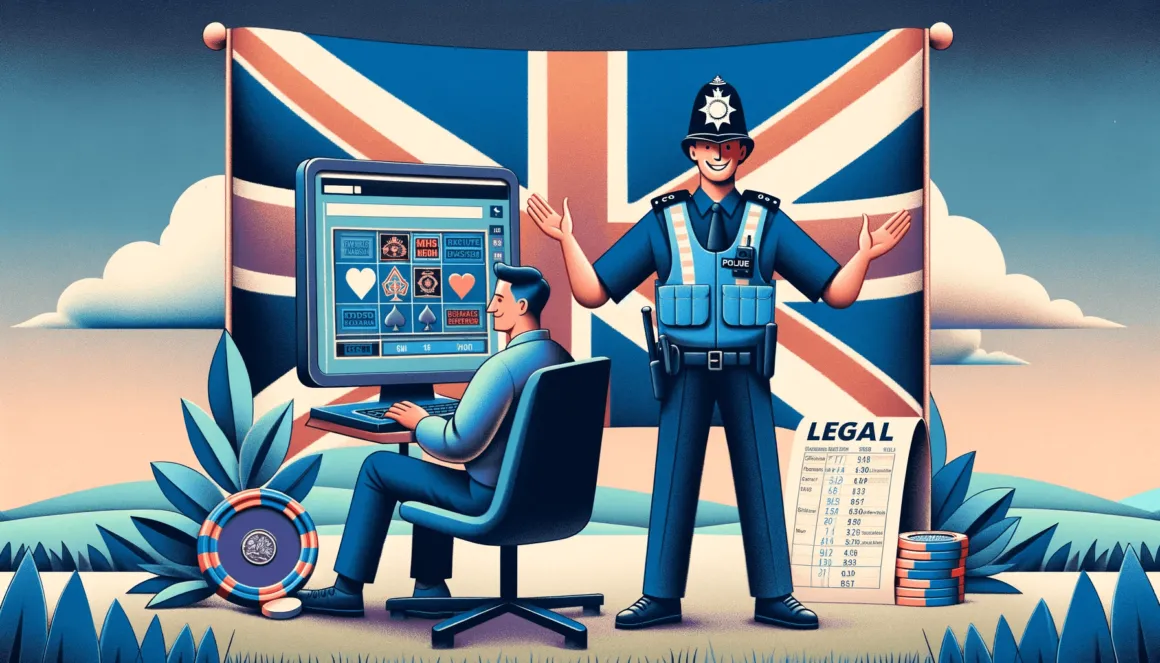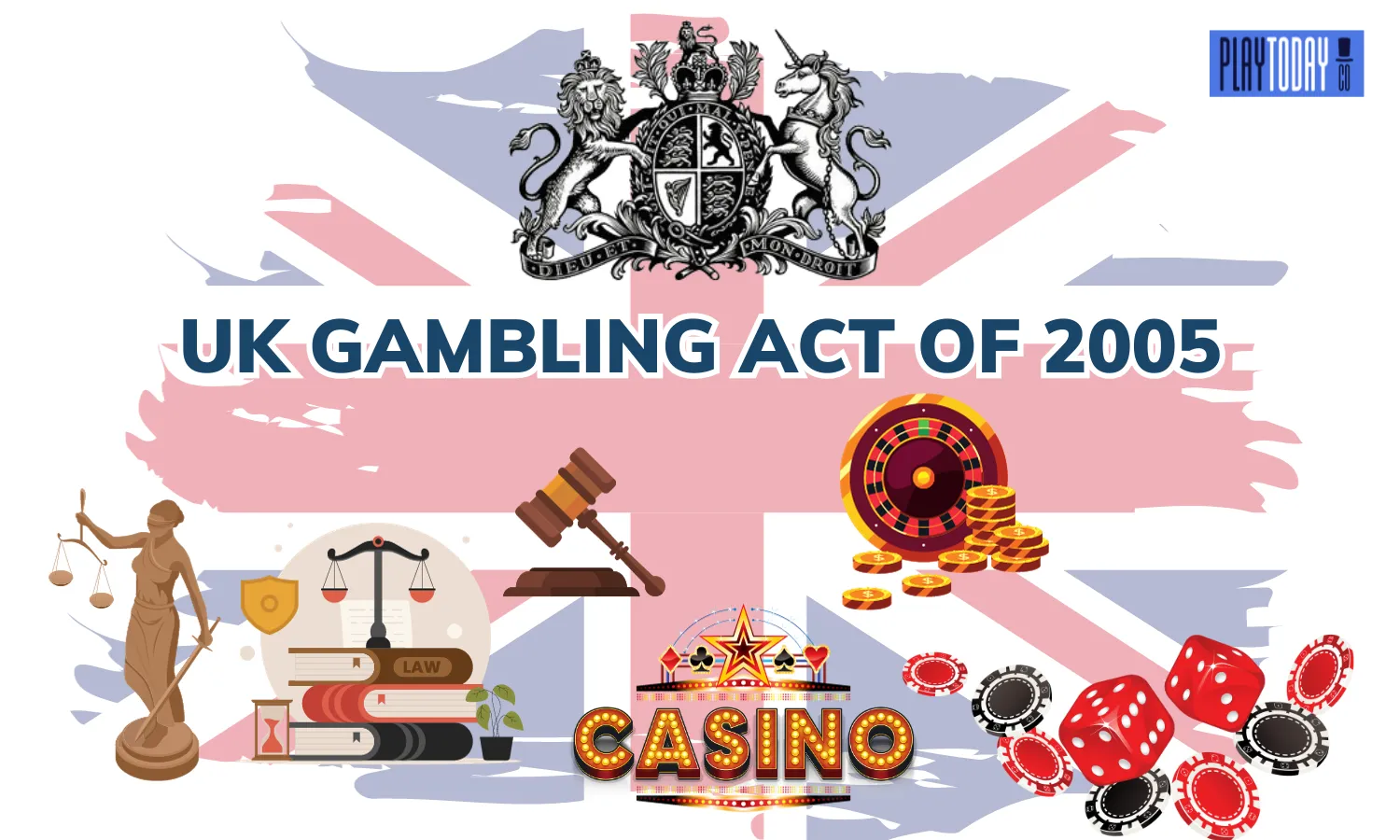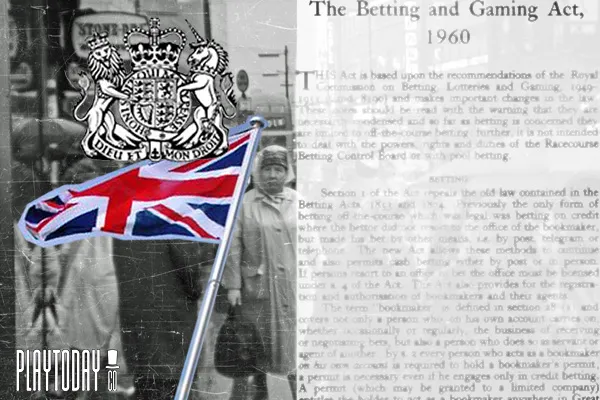A Comprehensive Guide to Gambling Laws in the UK
As the world of online gambling continues to grow, it is important for players to understand the laws and regulations surrounding this activity. The United Kingdom has a long history of gambling, dating back to the 16th century, and has one of the most well-established and regulated gambling markets in the world.
With the rise of technology, the UK gambling industry has expanded to include not only traditional brick-and-mortar casinos, but also online casinos, sports betting, and other forms of gambling. In this guide, we will explore the various laws and regulations that govern gambling in the UK, including the types of licenses required, age restrictions, and responsible gambling measures.

History of Gambling Laws in the UK
The first recorded instance of gambling in the UK was in the 16th century, when Queen Elizabeth I introduced the first national lottery to raise funds for public projects. However, it wasn’t until the introduction of the 1960 Betting and Gaming Act that gambling became more widely accepted and regulated in the country.
This act allowed for the establishment of licensed betting shops and commercial bingo halls. In 1968, the Gaming Act was introduced, which legalized casino gambling and established the UK’s first legal casino, the Grosvenor Casino in London.
Since then, there have been several updates and amendments to these laws, including the introduction of the National Lottery in 1994, the Gambling Act of 2005, and most recently, the implementation of the Gambling (Licensing and Advertising) Act of 2014, which regulates online gambling in the UK.
Types of Licenses
In order to operate a gambling business in the UK, operators must obtain a license from the UK Gambling Commission, which is the regulatory body for all gambling activities in the country. The type of license required depends on the type of gambling being offered.
Operating License
An operating license is required for any business that offers gambling services, such as casinos, sports betting, bingo, and online gambling. In order to obtain this license, operators must meet strict criteria set by the UK Gambling Commission, including proving their financial stability, ensuring responsible gambling measures are in place, and conducting thorough background checks on key personnel.
Personal License
Individuals who hold key positions within a gambling business, such as directors, managers, and customer service personnel, are also required to hold a personal license. This ensures that those working in the industry are fit and proper persons with no criminal record or history of bankruptcy.
Premises License
For brick-and-mortar establishments, such as casinos, betting shops, and bingo halls, a premises license is required. This license outlines the specific location where gambling activities can take place and the types of gambling that are allowed.
Personal Management License
Those in senior management positions, such as CEOs and directors, are also required to hold a personal management license. This involves a more extensive background check and vetting process to ensure individuals are suitable to hold such positions of responsibility.
Age Restrictions
In the UK, the legal age for gambling is 18 years old for most forms of gambling, including casino games, sports betting, and online gambling. However, there are some exceptions, such as the National Lottery and scratch cards, which can be played by those aged 16 and above.
Operators are responsible for ensuring that underage individuals are not able to access their gambling services. This includes implementing age verification procedures and displaying age restrictions prominently on their websites and in their establishments.
Responsible Gambling Measures

As with any form of entertainment, it is important for individuals to gamble responsibly and within their means. The UK takes this issue seriously and has implemented several measures to help promote responsible gambling.
Self-Exclusion
Players who feel they may have a problem with gambling can opt to self-exclude themselves from all gambling activities for a specified period of time. This can be done by contacting the UK Gambling Commission or individual operators, who are required to offer this service to their customers.
Deposit Limits
Operators are also required to offer players the option to set deposit limits on their accounts. This allows individuals to control the amount of money they spend on gambling and can help prevent them from overspending.
Advertising Restrictions
The UK has strict laws in place regarding the advertising of gambling services. Operators must not target underage individuals or vulnerable populations in their advertisements and must include responsible gambling messaging in all marketing materials.
Popular Forms of Gambling in the UK

The UK offers a wide range of gambling options for its residents and visitors, both in-person and online. Let’s take a closer look at some of the most popular forms of gambling in the country.
Casino Gambling
While casinos have been around in the UK since the 1960s, they continue to be a popular form of entertainment for many. The country is home to some of the most luxurious and well-known casinos in the world, such as the Hippodrome Casino in London and the Alea Casino in Glasgow.
In addition to traditional casino games like blackjack, roulette, and poker, these establishments often offer slot machines, electronic gaming machines, and other forms of gambling to cater to a diverse audience.
Sports Betting
Sports betting has also been a popular activity in the UK for many years. From horse racing and football to boxing and tennis, there are endless opportunities for bettors to place wagers on their favorite sports teams and events.
With the rise of online betting platforms, it is now easier than ever for individuals to place bets on a variety of sporting events from the comfort of their own homes.
Online Gambling
As mentioned earlier, the introduction of the Gambling (Licensing and Advertising) Act in 2014 legalized online gambling in the UK. This led to a significant increase in the number of online casinos and betting sites available to players.
Many operators offer a wide range of games, including traditional casino games, sports betting, bingo, and other forms of gambling. The convenience and accessibility of online gambling has made it a popular choice for many in the UK.
National Lottery
The National Lottery was introduced in 1994 and offers a variety of games, including Lotto, EuroMillions, and scratch cards. A portion of the proceeds from these games goes towards funding various charitable projects and initiatives in the UK.
Impact of Gambling Laws in the UK

The strict regulations and laws surrounding gambling in the UK have had a significant impact on the industry and its players. Let’s take a closer look at some of the positive and negative effects of these laws.
Positive Effects
One of the major benefits of the UK’s gambling laws is the protection it provides for players. With strict age restrictions and responsible gambling measures in place, individuals are less likely to fall victim to problem gambling.
Additionally, the licensing requirements ensure that operators are reputable and financially stable, providing a safer and more secure environment for players.
Negative Effects
One potential negative effect of the UK’s gambling laws is the limited access to certain types of gambling for underage individuals. While this is important for preventing underage gambling, it also means that those who may be mature enough to gamble responsibly are unable to do so until they reach the legal age of 18.
Another potential issue is the advertising restrictions placed on operators. While this is important for promoting responsible gambling and protecting vulnerable individuals, it can also limit the marketing and growth opportunities for gambling businesses.
Conclusion
In conclusion, the UK has a well-established and regulated gambling industry, with laws in place to protect both players and operators. From the history of gambling laws to the different types of licenses required, age restrictions, and responsible gambling measures, it is clear that the UK takes this issue seriously.
As technology continues to advance and the world of online gambling expands, it will be interesting to see how the UK’s laws and regulations will continue to evolve to meet the changing needs of the industry. However, one thing is for sure – gambling in the UK will always be a popular and highly regulated form of entertainment.